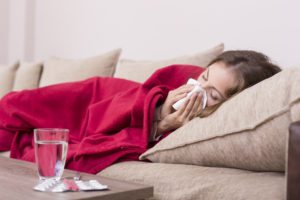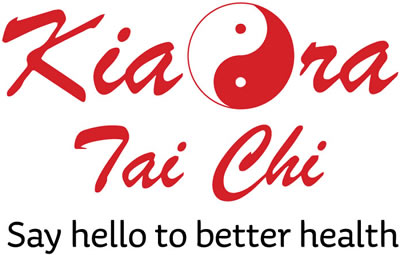by Jocelyn Watkin | May 6, 2025 | Information |

Dreaming of flying towards the sun this winter?
Feeling all shivery in the mornings? What about when curled up under two duvets at night, dreaming of flying north or to the Pacific Islands to follow the sun?
Before you book that one-way ticket, here’s a cosy secret: you can turn up your inner heat right here at home — no passport required.
As the days grow shorter and the chill sets in, many of us start hunting for ways to stay warm without simply cranking up the heater or huddling under several blankets all winter.
Tai chi and qigong might not be the first things that come to mind when you think of keeping warm — but they should be.
So, can tai chi really help quell the quivery shivers of winter?
Yes, absolutely.
Tai chi and qigong are gentle forms of exercise, which means they’ll warm your body just as any physical movement does. But they go far beyond that.
The magic lies in the how. Slow, flowing movements combined with deep, mindful breathing do more than just get your blood moving — they improve your circulation and help your body absorb oxygen more efficiently.
Unlike high-intensity workouts that burn through your oxygen and leave you gasping, tai chi and qigong cultivate a quiet, lasting energy that lingers long after your practice ends.
That’s why so many practitioners describe a subtle, comforting warmth spreading through their bodies — not just during the session, but for hours afterward.
In the world of Traditional Chinese Medicine, this warmth has an even deeper explanation. Tai chi and qigong help to cultivate your qi — your life force, your mauri — which is believed to support your body’s natural defenses and resilience. A strong flow of qi is said to help you withstand not just winter’s chill, but also many seasonal bugs and fatigue.
And it’s not just ancient wisdom saying this. Modern research backs it up, too. Studies show tai chi and qigong can positively influence immune system functioning and reduce inflammation — helping you feel stronger and more energised during the colder months.
Explore the science here: https://www.kiaorataichi.nz/tai-chi-and-qigong-can-boost-immunity/
So next time you reach for another pair of socks or wrap yourself in a blanket, consider this: tai chi and qigong could be your warmest allies this winter.
I welcome new beginners at my tai chi classes in Clendon, Manurewa, on Wednesday evenings, 6.30 – 7.15pm. Your first class is free. Find out more: https://www.kiaorataichi.nz/classes/
The photo above of me practising tai chi in the glow of a huge, close-up photo of the sun was taken at the ‘Astronomy Photographer of the Year’ exhibition, Te Whare Taonga o Waikato Museum & Gallery, in Hamilton. https://tewharetaonga.nz/
by Jocelyn Watkin | Jul 8, 2019 | Information |

Sadly, there is no magic, instant cure for the common cold.
Depending on your immune system, plus how much time and rest you can give yourself, most people will overcome a cold virus in just over a week or so.
However, being aware of the risk factors of catching a cold and reducing those risks can help avoid or reduce the severity of a cold.
There are five broad risk factors:
- Lack of sleep
- Stress
- Age
- Season
- Smoking
Tai chi can really help with the first three.
Sleep: Rest and getting enough sleep is vital for good health. Nearly everyone who attends my tai chi classes mentions how they always get a better night’s sleep after class. It’s not just the exercise that helps you to sleep. It’s also the calming effect of the deep breathing and the slow, smooth continuous movements of tai chi.
If you do get a cold or other illness, try to rest and sleep as much as possible as it will help with your recovery.
Stress: Relieving stress goes hand-in-hand with rest and a good night’s sleep in terms of helping to reduce the risk of catching a cold. Numerous studies and clinical trials have proven the tai chi can reduce stress
Studies at Carnegie Mellon University in Pittsburgh suggest that psychological stress can raise your risk of developing a cold. They suggest it affects how the stress hormone cortisol works. This hormone regulates inflammation in your body. When you’re under stress, cortisol may be less effective at managing your body’s inflammatory response to the cold virus. This may cause you to develop a cold. Read more about this
To minimise stress Carnegie Mellon University recommends a number of techniques, which include tai chi. Discover these techniques
Click here to read an article I wrote on how to use tai chi breathing to bust stress in just a few minutes per day.
Age: Children and older people are more at risk of getting a cold. In children, this is because their immune systems are not fully developed. In older adults, it is because their immunity levels drop as part of the ageing process. Clinical trials have concluded that regular sessions of tai chi may boost the immune systems of older adults and could also help to improve the effectiveness of vaccines, including the ‘flu vaccine. You can read more about these trials here:
Season: Just because the weather is cold, doesn’t mean you’ll get a cold. However, you’ll probably spend more time indoors in the winter months and that means more ‘rubbing shoulders’ with other people. You can lower your risk with good hygiene like washing your hands and lower the risk to others by staying home when you are sick and covering your nose and mouth when you sneeze or cough.
Smoking: Smoking compromises your immunity levels and second-hand smoke can disrupt immunity in others. If you smoke, talk to your health professional about how to quit.
While some risk factors are hard to control, others can be managed. Regular practice of tai chi could lower your chances of catching a cold.
Read more about the risk factors for the common cold here
Related information: A cold fact: High stress can make you sick


